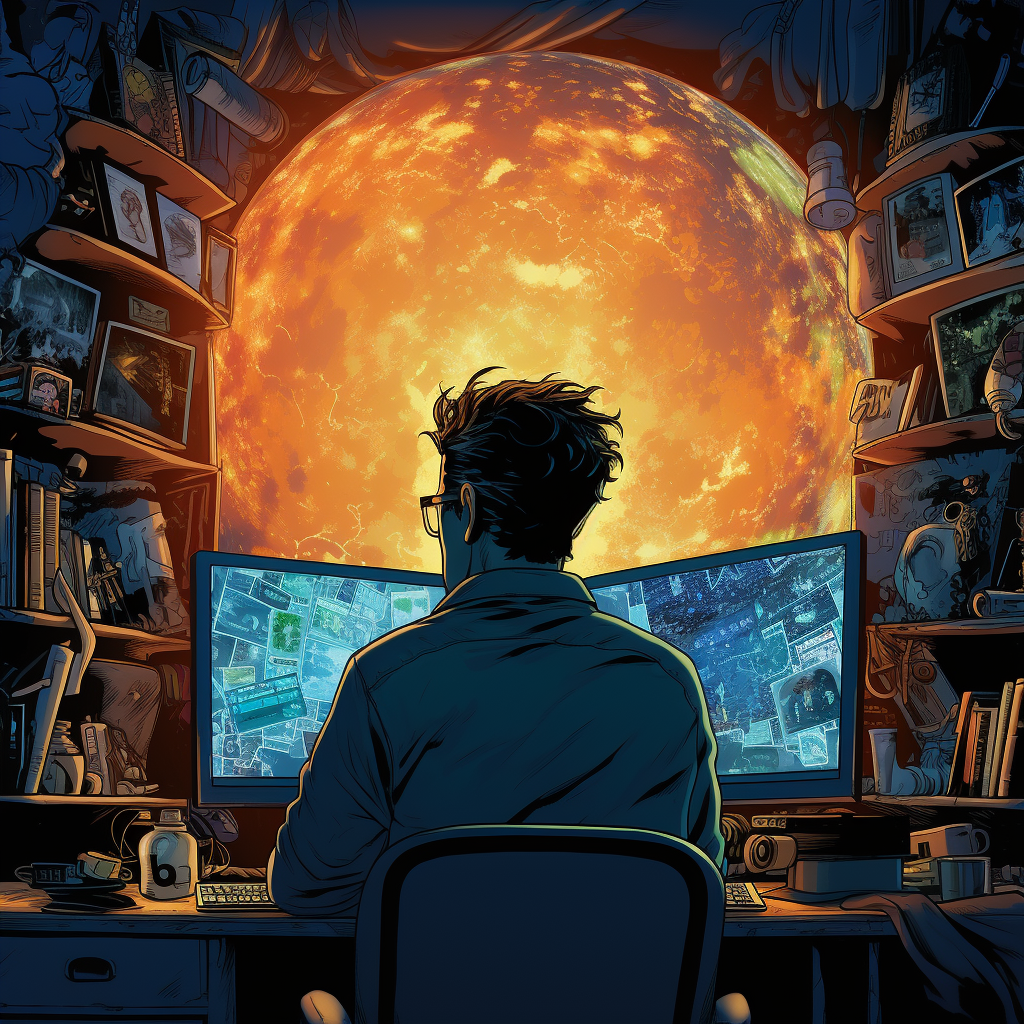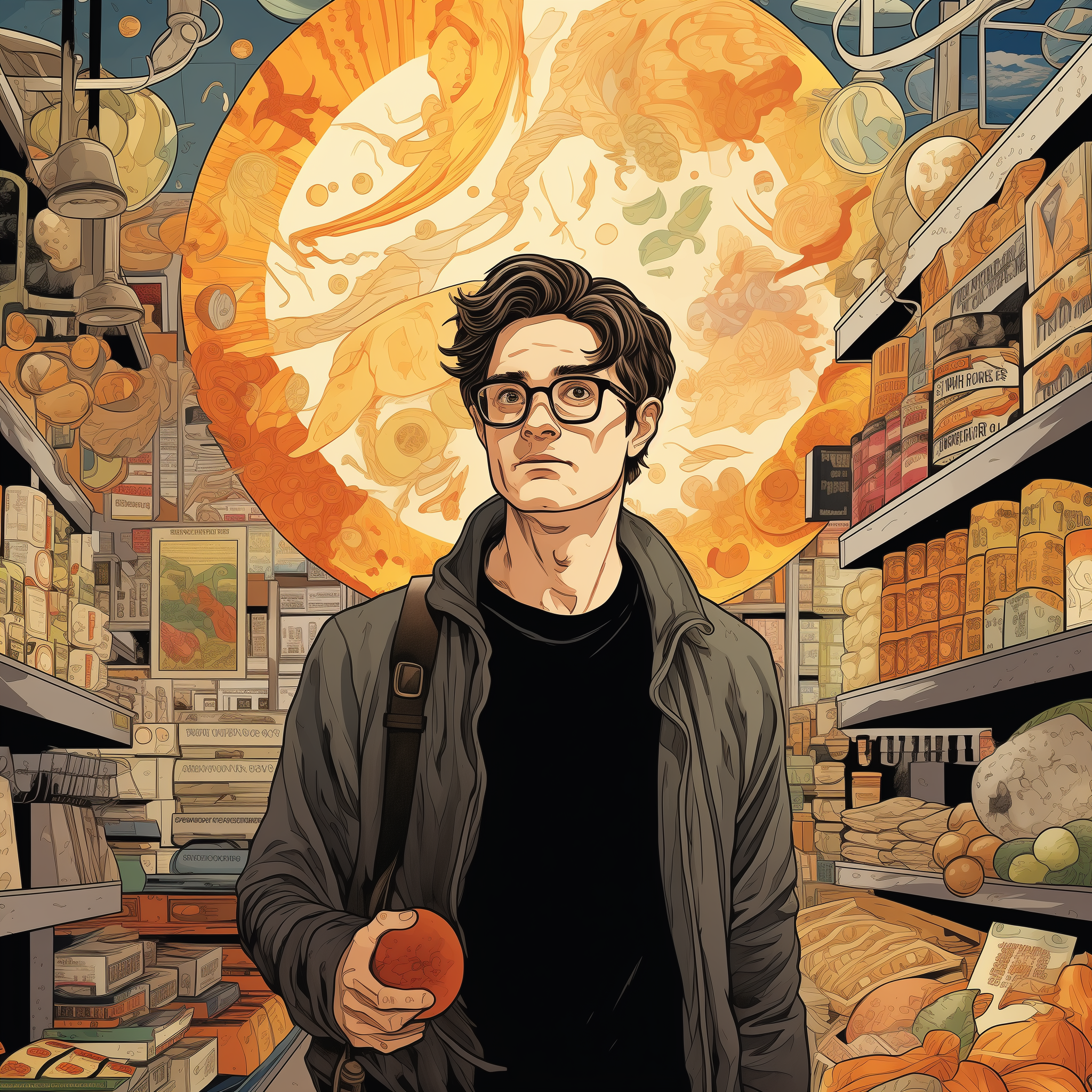My hermetic sanctuary
A phenomenal reflection on technology leads to contemplation of its social implications.

In the service of whom, exactly? Or what? Questions I ask myself, as I sit, typing at my computer. Technology is already influencing me, for better or for worse. As I stray from the written word and check my Facebook and Instagram for updates, I am reminded of just how easily our own individual and collective will can be swayed in this or that direction, away from its original intent. Everyone’s done it – you decide to check your Insta, and ten minutes later, you have no idea what you originally went looking for, you have been taken down a rabbit hole of posts that beguile you with a superficial intrigue, and then you have to make a conscious effort to remind yourself of just what the hell you were doing in the first place.
In this sense, we as humans are malleable, supple, and easily coerced by the instincts of our own natures and that of others – even if the dominating force in question doesn’t seem that natural at all. Technology, social media, and AI, are products of our own making, and yet they seem to play against our better instincts – they are not real-real, they are just virtual-real.
Writing is an attempt to focus one’s thoughts, to hone in, reflect and gain clarity. And sift through so much outside influence, so much distracting debris, including our own thoughts. It is also an attempt to preserve, for posterity and maybe notoriety. Either way, it is a discipline. It needs to be repeated regularly to turn into a habit. But with all this talk of AI of late, and just how ‘human’ or ‘real’ technology can become, I wonder how this will affect, in the coming years and decades, our own sense of who we are, our own humanness. Maybe it will turn on us, like the AI overlords in The Terminator, or maybe it will make things better in some way. Or I guess, more realistically, it will be a mixture of the two.
***
When I was in my early twenties, away from my parent’s home for the first time, in a town over a hundred miles away and studying for a degree in Fine Art, I also had to make such a decision to focus. The distraction in this case was TV. My three flatmates all wanted to chip in to buy a satellite package deal, but I didn’t want to take part, because I didn’t want to sit around night after night watching whatever mundane shit was on, flicking through endless channels of guff, just like I did before at my parent’s. No, I wanted to meet people, have adventures, and explore.
So no doubt such a decision contributed to an awkward atmosphere in our shared environment; an animosity, an outsider feeling as I walked past them sprawled out over the sofa and armchairs, eating their TV dinners in front of Emmerdale or Who Wants to be a Millionaire. Instead, I carried on straight through, tunnel vision, to the kitchen, made my own food, or went to the toilet, only to walk back past them again and up the stairs to my room, which had become my hermetic sanctuary.
I played music at a low volume to drown out the TV sounds downstairs and sipped instant coffee or drank red wine, whilst attempting to write poetry. My library grew, as I read authors like Will Self, Joyce, and Kerouac. It was a very separate world from that of my flatmates down below. No doubt they thought me something of a prude. I tried to avoid bad blood between us, and it was amicable enough, really, but it saddened me, how much of a grip the bloody TV had on them.
***
And here I am now, some twenty years later, trying to achieve a balance in that same battle, protecting the sanctity of my own mind against the onslaught of other distractions. I don’t want to become another automaton, a drone to the endless proliferation of screens that orchestrate so much of our lives. Being an artist might help in some regard, as the whole point of art is to react against habitual, repetitive, machinic behaviour. It is about the soul, the spirit, that which traditionally speaks of freedom from comfortable consumerism or uninspired materialism.
But in the absence of a shared belief system, people inevitably try to invent their own gods. And as these technological gods are the invention of humans, they cannot be otherwise than flawed.
That said, I try not to have a black-and-white view on these things. Not, ‘technology bad,’ ‘humans good’. I often call people automatons when I think that they’re behaving too bureaucratically, under my breath of course, never to their faces. In this sense, I don’t think our continual technological advancement holds anything new in store; is your shiny new iPod really so much more interesting than the one that preceded it, or the one before that?

Of course, when I go to the supermarket, like anyone else, I cringe at the increasing self-checkout sections and wonder when they will fully take over the humans that scan your products with their actual human hands. I say I cringe, but this would be somewhat hypocritical, as I frequently use the self-checkouts myself. But I still use the human ones, as ironically I find it easier a lot of the time, as the self-checkouts so frequently have issues where you need a human to come and type to approve a product or check that you’re of legal age, and not to mention the agonising annoyance with the whole bag detection-confusion bit where the computer keeps going on about ‘unidentifiable item in the baggage area’.
This is the irony inherent within technological advance, that which is meant to be slicker, sleeker, and faster is undermined by the fact that a wide variety of things can go wrong, and so conversely, technology can be more arcane, convoluted, and slower than the humans it replaces. This irony should remind us not to get too comfortable, and motivate us to seek out places of solace, where the endless distractions fade away.
I first developed an interest in writing in my early twenties whilst at university studying Fine Art. Attempts at poetry led to attempts at fiction. Ever since then, my library has expanded, and during Lockdown, I joined one of Daniel Pinchbeck’s virtual writing workshops, which inspired me through critical dialogue, assignments and feedback to improve my work. I am trained as a social worker and have worked in the mental health field for the past decade. This has partly inspired a semi-autobiographical novel I have now self-published which is available to preview and purchase on Amazon, entitled The Undiagnosable Patient.